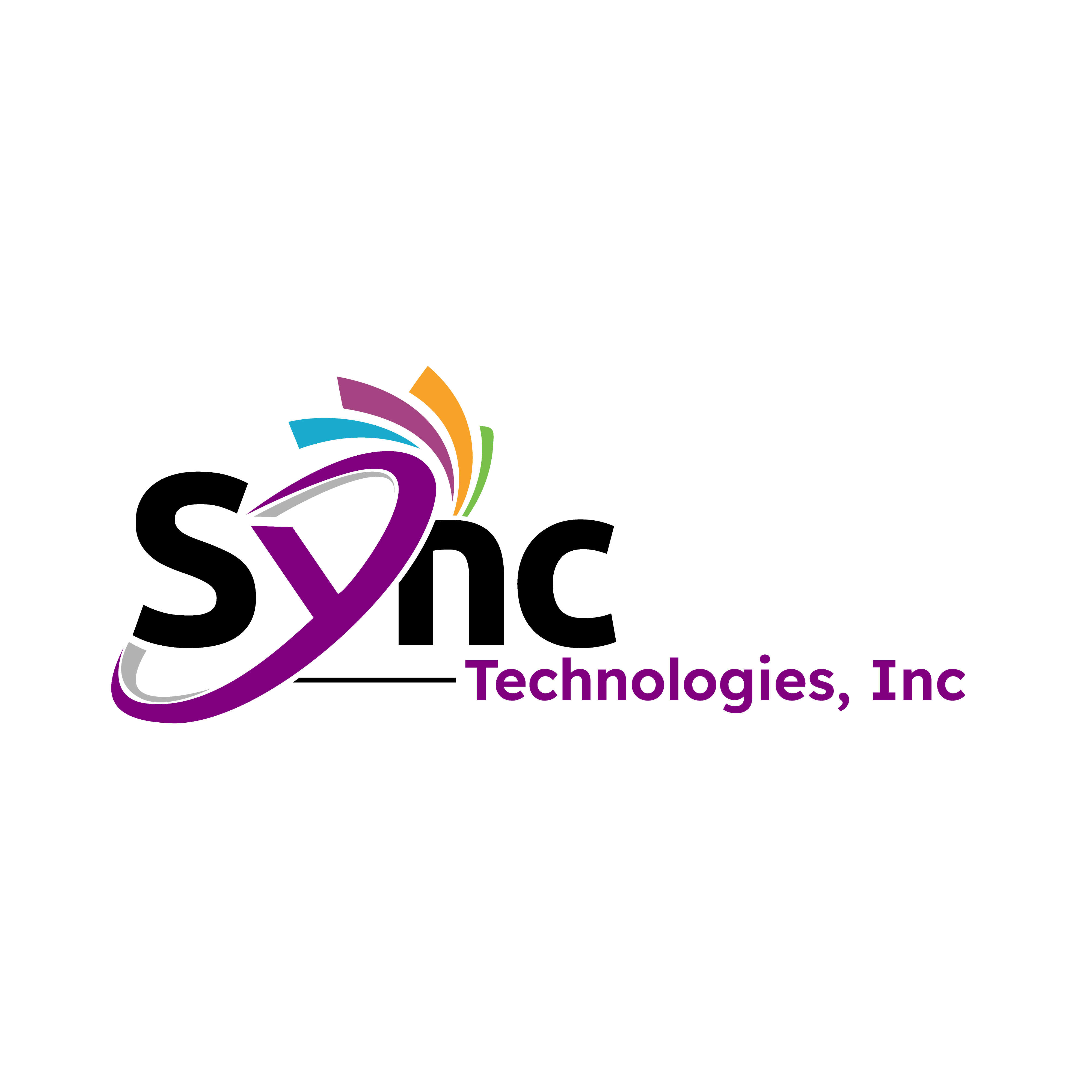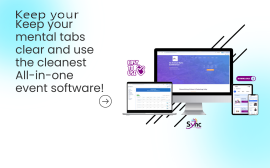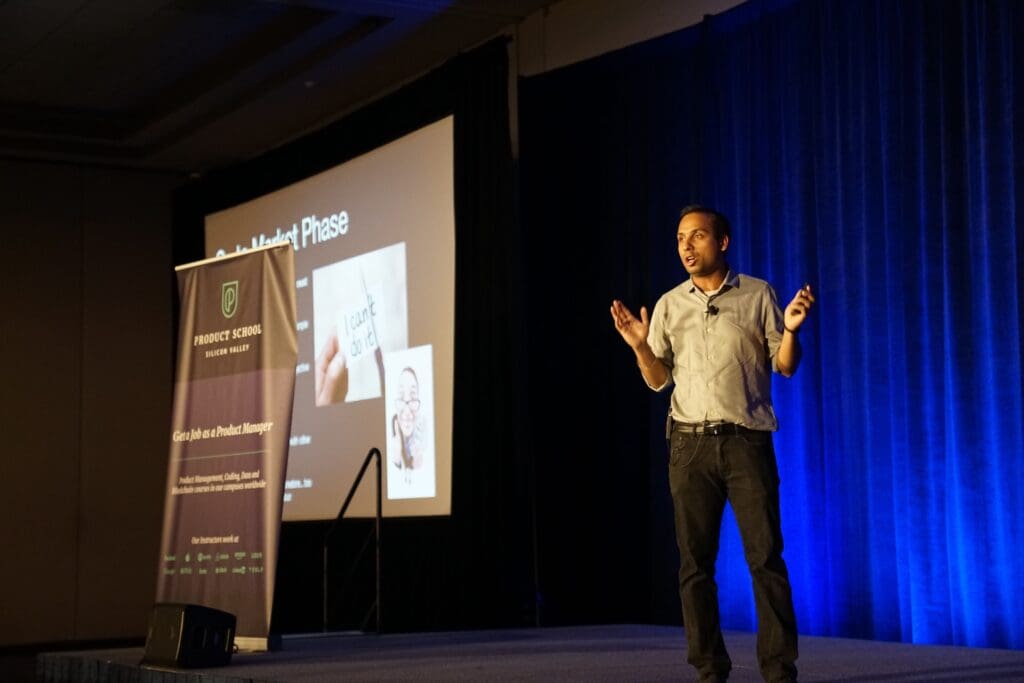In today’s world, the importance of sustainability is more
prominent than ever, and the event industry is no exception. As event planners
grapple with the environmental impact of their events, there is a growing need
to shift towards eco-friendly practices and reduce waste, energy consumption,
and carbon footprints. Embracing sustainability not only benefits the
environment but can also enhance your event’s reputation and appeal to an
increasingly environmentally conscious audience.
In this blog, we will
explore the various aspects of green event planning and discuss how Sync
Event’s event management platform can support your journey towards creating
more sustainable events. From analyzing event waste and resource consumption to
selecting eco-friendly venues and suppliers, we’ll provide actionable insights
and tips to help you create a more responsible and environmentally friendly
event experience. Additionally, we’ll showcase how Sync Event’s platform can
help streamline the adoption of sustainable practices and offer innovative
solutions to minimize the negative impact of your events.
Creating sustainable events requires a strategic approach,
but it doesn’t have to be a daunting task. With the help of Sync Event’s event
management platform, you can confidently navigate the complex world of
sustainability and effectively implement eco-friendly practices. So, let’s
delve into this important aspect of event planning and uncover the powerful
potential of Sync Event, enabling you to create memorable and sustainable
events that resonate with your audience and respect our planet.
1. Key Elements of
Sustainable Event Planning
Sustainable event planning encompasses several crucial
components that work together to minimize the environmental impact of your
events. Consider these key elements when building your eco-friendly event
strategy:
·
Waste Reduction: Assess the sources of waste in
your event lifecycle and implement measures to reduce single-use materials,
promote recycling, and minimize waste generation.
·
Energy Efficiency: Analyze energy consumption
patterns, adopting measures to reduce energy waste, such as incorporating more
efficient lighting and heating solutions, and utilizing renewable energy
options.
·
Sustainable Venue Selection: Choose venues with
green certifications, or those that have implemented environmentally friendly
practices, such as waste management, energy efficiency, and water conservation.
·
Eco-conscious Catering and Procurement:
Collaborate with suppliers and vendors who prioritize sustainability, sourcing
eco-friendly materials, and catering options to minimize your event’s
environmental footprint.
By considering these elements in your event planning
process, you can create a comprehensive, sustainable event strategy that
respects our planet and appeals to eco-conscious attendees.
2. Utilize Sync
Event’s Platform to Streamline Sustainable Event Management
Sync Event’s all-in-one event management platform offers an
array of features that can support your sustainability efforts, simplifying the
transition towards green event practices:
·
Centralized Waste and Resource Tracking: Monitor
waste, energy consumption, and other resource usage metrics through Sync
Event’s platform, enabling data-driven decision-making for sustainable
improvements.
·
Digital Event Materials: Minimize paper waste by
providing digital event resources such as agendas, speaker bios, and
presentation materials through Sync Event’s user-friendly platform.
·
Virtual and Hybrid Event Options: Offer virtual
or hybrid event options to reduce travel-related emissions, providing an
eco-friendly alternative for remote attendees.
·
Sustainable Supplier and Venue Database: Access
a database of eco-conscious suppliers and venues directly through Sync Event’s
platform, streamlining the selection and evaluation process.
Leveraging Sync Event’s platform and features can help you
simplify and optimize the adoption of sustainable event practices, ultimately
benefiting both your event and the environment.
3. Engage Your
Attendees and Partners in Sustainability Efforts
Encourage attendees, sponsors, and partners to actively
participate in your event’s sustainability initiatives, fostering a sense of
collective responsibility and commitment to eco-friendly practices:
·
Communicate Your Green Initiatives: Clearly
share your sustainability goals and strategies with attendees, sponsors, and
partners, highlighting the steps your event is taking to minimize its
environmental impact.
·
Provide Sustainable Alternatives: Offer
attendees eco-friendly choices during the event, such as reusable drinkware,
recycling stations, and plant-based food options.
·
Encourage Sustainable Transportation: Promote
the use of public transportation or carpooling options for attendees, and
consider providing real-time data on transport options directly through Sync
Event’s platform.
·
Collaborate with Green Sponsors: Partner with
sponsors who share your commitment to sustainability, aligning your event’s
values with your stakeholders and amplifying your collective impact.
By actively involving stakeholders in your green event
planning efforts, you can foster a culture of sustainability and drive
meaningful change in the industry.
4. Measure and
Improve Your Event’s Environmental Performance
Consistently measuring and analyzing your event’s
sustainability performance is crucial to continuous improvement and long-term
success in green event planning:
·
Monitor Key Sustainability Metrics: Track
critical performance indicators such as waste generation, energy consumption,
and water usage using Sync Event’s centralized analytics and reporting
features.
·
Conduct Post-Event Surveys: Gather feedback from
attendees, sponsors, and partners on the effectiveness of your sustainability
initiatives, identifying areas for growth and improvement.
·
Set Sustainability Targets: Establish concrete
goals and targets for your event’s green performance, driving focused
improvement efforts and holding your team accountable.
·
Share Progress and Success Stories: Communicate
your event’s sustainability efforts and achievements with your audience and
industry peers, inspiring others to adopt eco-friendly practices and raising
the bar for the entire industry.
By continually evaluating your event’s environmental
performance and implementing data-driven improvements, you can enhance the
effectiveness of your sustainability strategy and foster a positive impact on
the events industry.
Conclusion
The push towards sustainability in event planning is growing
stronger, fueled by increasing awareness and a shared desire to protect our
planet. As event professionals, incorporating eco-friendly practices and
strategies is no longer an option but a responsibility to our environment and
our attendees. With Sync Event’s event management platform at your fingertips,
creating sustainable events that minimize environmental impact and resonate
with eco-conscious audiences is more achievable than ever.
Embrace the future of sustainable event planning by
harnessing the power of Sync Event, and drive meaningful change within your
events, the industry, and our world. Together, we can set a new standard for
eco-friendly event experiences and make a lasting, positive impact on our
planet.
Learn more about it on our site.
https://syncup.live/v5toqkbh















